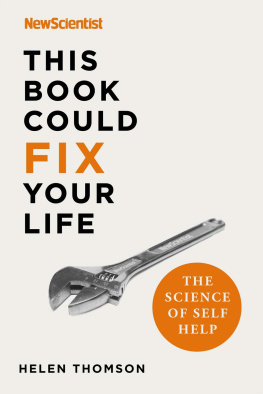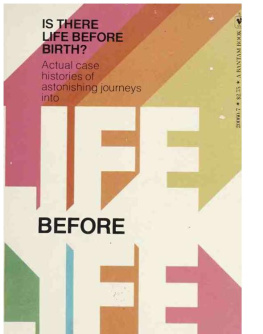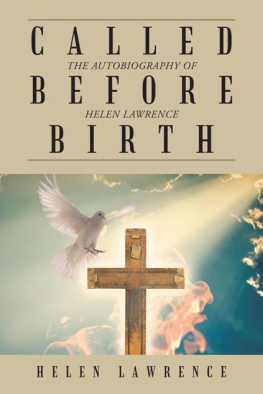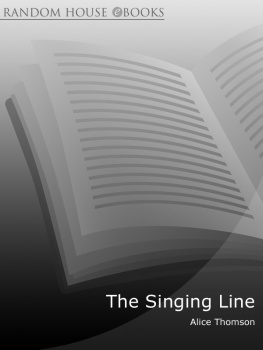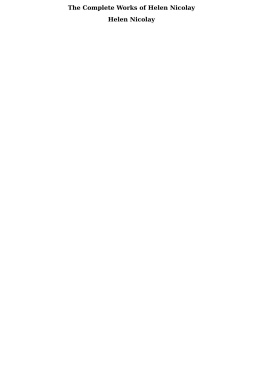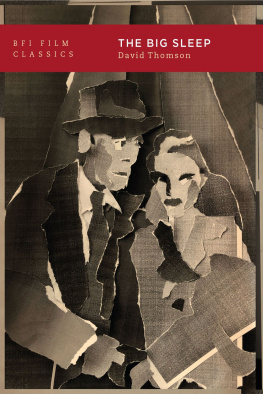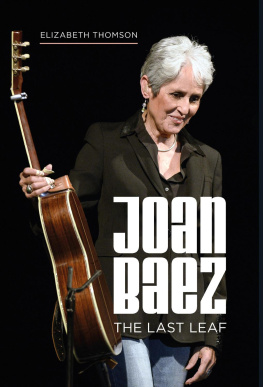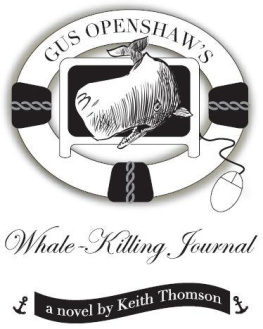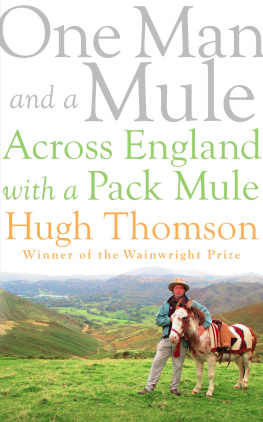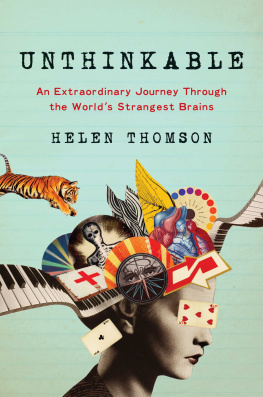Contents
Guide
About the Authors
Since 1956, New Scientist has established a world-beating reputation for exploring and uncovering the latest developments and discoveries in science and technology, placing them in context and exploring what they mean for the future. Each week through a variety of different channels, including print, online, social media and more, New Scientist reaches over 5 million highly engaged readers around the world.
Helen Thomson is a freelance writer and consultant with New Scientist . She has also written for the Guardian , the New York Times, Nature and the BBC, and has won various awards for her journalism. Her book Unthinkable: An Extraordinary Journey Through the Worlds Strangest Brains was The Times Book of the Year in 2018. Helen has a BSc in Neuroscience and an MSc in Science Communication. She lives in London.
How to use this eBook
Look out for linked text (which is in blue) throughout the ebook that you can select to help you navigate between notes and main text.
ACKNOWLEDGEMENTS
This book was not a solo project. First, all of the information, data, research, quotes, knowledge and statistics came from the minds of thousands of dedicated scientists over several decades. Second, almost everything you have read was first conceived, conjugated and perfected by a team of staff and freelance writers and editors at New Scientist .
I have combined my own research, stories and knowledge with features and news from the magazines archive, and I would be remiss not to individually acknowledge each and every one of these wonderful journalists whose work I have incorporated into the book. I apologise unreservedly if I have missed anyone off this list. Thank you William Lee Adams, Sally Adee, Pragya Agarwal, Anil Ananthaswamy, Alun Anderson, Abigail Beall, Jessica Bond, Michael Bond, Catherine Brahic, Teal Burrell, Michelle Carr, Eleanor Case, Catherine de Lange, Kate Douglas, Robin Dunbar, Madeleine Finlay, Linda Geddes, Alison George, Jessica Hamzelou, Martie Haselton, Douglas Heaven, Rowan Hooper, Joshua Howgego, Christian Jarrett, Dan Jones, Chloe Lambert, Graham Lawton, Jo Marchant, Alison Motluk, Tiffany OCallaghan, Heather Pringle, David Raubenheimer, Timothy Revell, David Robson, Moya Sarner, Megan Scudellari, Chris Simms, Stephen Simpson, Chris Stokel-Walker, Kayt Sukel, Amelia Tait, Sonia Van Gilder Cooke, Susan Watts, Jon White, Caroline Williams, Sam Wong and Emma Young.
A massive thank you to Richard Webb who stepped in when imminent labour put pause to my finishing touches, and at John Murray Press to Georgina Laycock and Abigail Scruby for their wonderful editing and ideas, and Yassine Belkacemi for his consistently amazing work in promoting the books that I write.
Finally, thank you to Alex, Jess and baby Sam for being the most wonderful family in the world.
AFTERWORD
I am conscious that using serious, evidence-based studies is not, by any means, the easiest way to go about fixing your life. It is much simpler to ask a friend what works for them, listen to old wives tales, perhaps just do what your mum did before you. But if you decide to take the easier path, you must also accept that it might be a complete waste of time.
Science truly is the best way to understand what works in this world and what doesnt. If it hasnt been tested, then it is as anecdotal as the personal stories that I have interspersed throughout these chapters. Thats not to say that what your mum or your friends or the old wives tales say are always wrong. Maybe their advice is good, maybe it isnt. But with only limited time in the day to make changes that have the potential to add entire years of better physical and mental health to our life, I know which Id rather put my money on.
That said, I dont want you to think its possible to walk around living your life by scientific studies 24/7. Thats just not feasible, nor enjoyable. I certainly dont. I dont put shoes on tables or open umbrellas indoors because my mum once told me it was bad luck. Tomorrow, youll find me baking labour cookies because two of my friends swore by their ability to bring on the birth of their children. I have a lucky pair of underpants, for goodness sake.
What Im trying to say is that theres nothing wrong with occasionally listening to friends, to instinct, to a person you admire from the telly; perhaps some of the things they do will work for you too. Maybe its just fun to try something new. Sometimes these things will be life-changing. Sometimes things that have been tested on millions of people wont work for you someone has to be an outlier.

